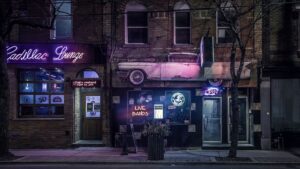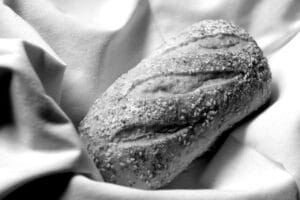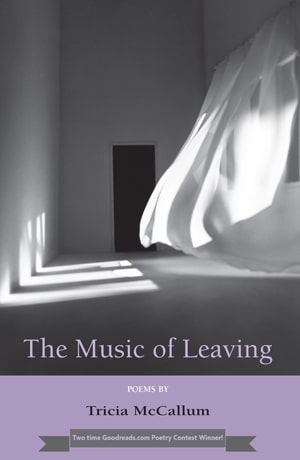I’m finally convinced: The universe is random. You never know what’s around the corner.
Consider this: Everything seems to be in order. You’re paying your bills on time, watering your plants, and keeping things basically in hand. Then one day out of the blue your best friend since Grade One calls and tells you she has cancer.
It wasn’t like a dramatic announcement or anything. Clare just mentioned it in passing, in between details of her latest fight with her landlord and how Bess, her two-year old, won’t eat anything except Ritz crackers and peanut butter.
“Nothing else passes this kid’s lips, Katherine,” she moans. We both agree this can’t be good. I suggest to Clare that she try guerilla tactics.
“Don’t feed her anything,” I say. “She’ll end up begging you for a carrot stick.” I read this in a book once but can’t remember if it worked.
I need to see Clare face to face. I ask her to come over and bring the baby, offering chocolate éclairs, her passion, as an enticement. “Can you spread them on crackers?” she asks, before deciding.
I hang up and look down at the drawings on my desk. I’m in the middle of illustrating an ad campaign for a local dance company. All of a sudden, somehow, the dancers I’ve drawn look all wrong. Instead of looking graceful and lyrical, they look anorexic, almost manic.
[divider type=”short” spacing=”20″]
Her name is not really Clare: It’s Arlene. I found that out the first day of school. We were taking turns standing and saying our names. The girl in the row across from me stood up, her thick dark hair held back on the sides with enamel combs. No other girl I knew wore her hair like that. Mine was pale, wispy thin, and as short as a boy’s.
“I am six and a half years old. Please call me Clare,” she announced staunchly. That was the thing about Clare: she always knew what she was about. Our teacher, Miss Beauschesne, was in no mood for aggravation and told her she would be called by her christened name and that was the end of it. She took her seat, miffed and muttering to herself. At recess she told me that there had been some kind of mistake, that she was absolutely not an Arlene. I felt there was something in what she said and agreed to call her Clare from then on. We both felt I was meant to be a Katherine so I kept it.
We’re sitting at the kitchen table eating éclairs and drinking tea from our favourite china cups, the ones with delicate pink roses painted across the bottom. Clare’s brunette hair is gathered loosely in a lace snood at the nape of her neck. Today I notice every detail about her, the aristocratic forehead, the luminous skin. At her neck is an exquisite mother-of-pearl brooch she bought at some second-hand boutique for peanuts. She adores anything old fashioned, which I tell her is a strange contradiction in a feminist, but Clare insists the most interesting people are full of wild contradictions.
Bess sits cross-legged in front of the tv, watching Mr. Rogers feed his goldfish. Her éclair sits by her side, untouched. She’s already a media fan, just like her mother and me. I spend my free days with them and once we’ve put Bess to bed, we stay up until all hours watching videos and ordering out for pizza. Clare’s all-time favourite, which she insists on watching at least four times a year, is “The Way We Were” with Barbra Streisand. She always rewinds the tape so she can watch one scene again: the one near the end when Hubbell runs into Katie in front of the Plaza Hotel and asks her if her new husband is a good father. Sniffling, she recites the dialogue verbatim along with the actors. Hubbell and Katie were doomed from the start in my opinion; Clare says they were meant to be together despite the odds.
We’ve always disagreed about movies. When we were teenagers and Psycho came to town I had to go see it alone because Clare said Hitchcock was a disturbed man who didn’t like women. My favourite film of all time is “The Heiress” with Montgomery Clift, especially the ending when Olivia de Havilland sits inside her darkened house, motionless, while her heartless suitor pounds on the door in vain. Clare finds the plot line overblown and maudlin but watches it anyway to appease me.
[divider type=”short” spacing=”20″]
The cancer started in her right ovary and is moving rapidly. She went to the doctor about two months ago with what she thought was a bad flu. Her diagnosis followed a series of unpleasant tests which Clare insisted were totally unnecessary.
“My chemotherapy starts next week, Kath,” Clare announces matter-of-factly. She’s just come back from her latest doctor’s appointment. I’ve been watching Bess, who had gotten hold of my colored markers while I was on the phone and did a Picasso on my office wall. Clare is trying to erase it with Mr. Clean and a sponge. “Can you take Bess for a couple of afternoons a week?” she asks, on her hands and knees scrubbing.
Bring Bess over whenever you want, for as long as you want, I tell her, squeezing her soapy hand too tightly. Maybe she can draw my ballerinas for me.
[divider type=”short” spacing=”20″]
Clare’s parents moved to Victoria when her father retired and she sees them as little as possible. Ida, her mother, turned into a stalwart vegetarian a few years back and now tells everyone she meets that she refuses to eat anything with a face. Clare once asked her if that included gingerbread men. Ida and Harold jog in Stanley Park almost every day, wearing matching sweat suits and terrycloth headbands. They do tae kwan do and subscribe to the maxim: healthy body, healthy mind. Clare figures her name wasn’t the only mistake made when she was born. Her real parents would not have names like Ida and Harold, she insists, more like Elizabeth and Robert. When Ida found out Clare was pregnant she chose to downplay it, as if by not talking about it, it would go away. She’d call long-distance, ask about the weather, and just before hanging up ask Clare begrudgingly how she was feeling. Ida only came around after Bess was born. Without Clare knowing I sent her and Harold a telegram announcing the news.
“You are now the grandparents of Bess, a gorgeous, nine-pounder,” it read. “If you saw her, you couldn’t resist her. She looks like you, Harold.” I figured the last sentence would work wonders. The following week, a box arrived at Clare’s apartment full of sleepers and plush toys, along with a note which said: “You didn’t mention what colour Bess’ hair was? Or her eyes? These things are important. Regards, your mother and father.”
The only other family Clare had was her brother, Larry, a financial analyst in Ottawa, whom she refers to as “the suit.” He holds some lofty position in the Jaycees. The last time he visited her he brought a briefcase full of work which he spread out over her kitchen table. “Larry never gives you his full attention when he talks to you, as if he’s got something more important he’d rather be doing,” Clare shrugs. “Even when we were kids, he kept to an agenda.”
[divider type=”short” spacing=”20″]
The day her doctor told Clare she was pregnant she stopped smoking cold turkey and made an appointment with a nutritionist. She cleaned her freezer of Sara Lee cakes and tv dinners, and bought a water distiller. Clare wanted that baby more than anything.
“I can raise this child,” she said, standing at her kitchen counter, furiously chopping up two heads of lettuce. “I can definitely do this.” She was three months pregnant at the time. Her situation was perfect, it was true. Running a mail order business out of her apartment meant she could stay home with the baby. In preparation, we cleared out her junky spare room, scrubbed the floors and walls, and painted everything white. It was the worst time of year to renovate, the hottest July on record. The paint was congealing in the cans, the brushes stiff and uncooperative. “I’m sweating like a musician writing a cheque,” said Clare, who was covered in dollops of paint, her hair piled up in a bun. She was beginning to show, a small protrusion just below her waist. “Check me out, Kath,” she said, stepping out of the shower later. “I look like a toxic spider.”
We haunted department stores for deals on crib sheets and terrycloth sleepers, and stockpiled Pampers for newborns when they went on sale. I found an antique cradle at a country fair and painted its sides with fields of spring flowers.
Bess was born on the coldest day of the year. I was Clare’s birth coach but nearly missed the event altogether. My car battery was dead and I couldn’t find a cab anywhere. When I finally rushed into the labour room in my paper gown and cap, Clare looked up, feverish and annoyed. “I’m glad you could make it,” she said crisply, her hair wet and flattened against her scalp. It was a tedious labour. Clare cursed profusely through most of it and begged to be given any drug the hospital had in stock. “Don’t ever let anyone tell you this doesn’t hurt,” she rasped in between breaths. She squeezed my hand so hard her nails left tiny half-moon imprints in my palm.
After she delivered, I went down to the hospital gift shop and bought tiny denim overalls for the baby, and the new Bette Davis biography for Clare. When I got back to the room she was sitting up with Bess in her arms, nuzzling into her neck. “My name is Clare,” she whispered to the baby. “And this is Katherine,” she said, motioning to me. “You lucked in, kid.”
[divider type=”short” spacing=”20″]
Neither of us ever married although we both came close once or twice. Clare dated a lawyer for about three years but finally left him because he was so cheap. She told me he brought out his calculator everywhere to double-check totals, even in the supermarket. What finally tore it, she says, was the time on her birthday he took her to dinner at the classiest restaurant in town and presented a discount coupon to the waiter. “Can you imagine? I’m sitting there in my $200 black velvet dress and $20 pantyhose and he’s trying to wrangle ten percent off.”
Clare met Bess’s father, a Bell repairman, when she had static on her telephone line. After he’d fixed her phone she asked him to stay for danish and tea. She fell for him, she says, because he took her seriously. Men never had, according to her, which she called the most subtle form of sexism.
“I express perfectly reasonable things to them and they chuckle to themselves,” she’d say, exasperated. When she told him she was pregnant, he asked her if she was sure he was the father. It was at that precise moment Clare struck marriage of her list of options.
We had a crush on the same boy in Grade Six. His name was Dennis. His father had been transferred to Toronto from Philadelphia and he joined our class in mid-term. We both agreed he was worldlier than the other boys at school, who hung around in large, sullen groups and always looked at the ground whenever they spoke to you. I fell hard for Dennis the day I heard him play “Green Sleeves” by ear on the piano.
The three of us spent a lot of time together, tooling around on our bikes and roller skating at the arena. Walking up the hill to school one morning Dennis handed me a small, red velvet case. “Would you give this to Clare?” he asked shyly. I didn’t have to look inside to know it was some golden token of his affection. I nonchalantly told him I would and when I got to school hid in the back of an empty classroom upstairs and sobbed uncontrollably into the sleeve of my duffle coat.
When I gave the box to Clare she looked disappointed. “He couldn’t give it to me himself?” she asked wistfully. She gave the locket back to him the next day, explaining that she wanted to keep her options open. None of the other girls I knew would have done what Clare did. Most of them would have done just about anything to land a guy.
[divider type=”short” spacing=”20″]
After high school we went our separate ways but kept in touch religiously. I went to an art college in Toronto and Clare headed to Hawaii for a year. Experiencing life firsthand was better than through the pages of books written by strangers, Clare figured. She ended up working as a cocktail waitress in a ritzy hotel on Waikiki Beach, which she says was the best job she ever had. I would sit in my flat on Gerrard Street, perch beside the radiator to keep warm, and study the photos she sent me of pink beaches and sun-drenched patios. In one picture, Clare was standing beside a poolside bar, holding a tray of pastel-colored drinks aloft. Her skin is the color of butterscotch and she’s wearing a turquoise sarong skirt. She looks completely at home.
I went to England for a holiday when I graduated and loved it so much I decided to stay. I landed a job as an illustrator in a London ad agency and was working all hours learning the ropes. By then Clare had come back to Toronto and working at a series of odd jobs. We fired letters back and forth like clockwork. In hers, she complained about missing me and how provincial Toronto seemed. I told her all about the Scotsman I was living with in a flat in Knightsbridge. When we broke up after two years Clare was the first person I called. Forgetting about the time difference, I woke her up.
“Alec is moving back to Scotland next month and he hasn’t asked me to go with him,” I sobbed into the phone. I was inconsolable.
“Well, you won’t be going then,” Clare droned, half asleep. I laughed despite myself at her way of simplifying things down to the bone. “It’s time you came home anyway, Kath. There’s a terrific apartment coming available downstairs. It’s got a walk-out patio. We’ll plant Cosmos.” The large daisies with soft, fern-like foliage were Clare’s favourite. She said they reminded her of a child’s drawing of a flower.
[divider type=”short” spacing=”20″]
Clare has been in and out of the hospital for three months now, on a hideous roller coaster of blood cell counts and test results. Last month the doctors said she was strong enough to go home for a few days and we made the most of them. We ran our favourite movies, played dress-up with Bess, and read to each other. One night I got up to go to the bathroom and found Clare sitting cross-legged on the living room floor surrounded by pictures of Bess. “Don’t let Ida get hold of Bess and her turn into a vegetarian, for God’s sake. They always look so pale – like they need a solid meal.” It was the first time I’d heard Clare talk about a future that didn’t include her. I crouched down beside her on the cold linoleum and slung my arms around her neck.
Back in hospital she’s propped up in bed, sucking on slivers of ice and surrounded by back issues of People magazine. The illness has stretched her skin tightly over her cheekbones, making her appear, oddly, much younger than her 31 years. She’s wearing an oversized cotton denim shirt, refusing to put on the hospital gowns she says smell of formaldehyde. The chemotherapy treatments leave her nauseous and exhausted, impatient with me and Bess.
“Camille was a rip-off movie,” she announces out of nowhere. “The woman has 20 minutes to live and she looks like she’s ready for a Vogue shoot.”
“But that’s the magic of movies, Clare, I say, trying to sound buoyant. It’s called suspension of disbelief. Who wants to pay seven bucks to watch Garbo puking into toilet bowls under fluorescent lights?” She snarls at me and yanks the bedcovers over her head.
I visit her whenever I can and read to her. We just finished “Memo from David O. Selznick,” about the Hollywood dynamo who produced “Gone with the Wind.” Clare’s favourite part is when Selznick was conducting his country-wide search for the actress to play Scarlett O’Hara. The story goes that Vivien Leigh and her agent approached Selznick on the movie set and the agent introduced him to the actress this way: “Mr. Selznick, I’d like you to meet Scarlett O’Hara.”
“We could use agents like that,” she says dryly, surrounded by machines with names too long to pronounce, her head covered with a bright red scarf. To keep things light I bring her lists of movie trivia questions and piles of supermarket tabloids. Every week we pick out the funniest headline. This week’s winner is: “I was Big Foot’s Love Slave.” Clare thinks we should start submitting our own stories and I can illustrate them. “I’ve got one, Kath,” she says, sitting bolt upright: “Wayne Newton Gives Birth to Alien Baby.”
[divider type=”short” spacing=”20″]
On her good days Clare’s courage makes me cry. On bad days when it all seems too much, she says things like she should have stayed in Hawaii, that it’s all the dioxin in Toronto’s water that made her sick. But Clare knows better. I know that she believes as I do that the universe is random and unimaginably violent, that we’re all here because of some gigantic accident and can leave the same way.
Yesterday, she asked me to take Bess after she goes, that I’m the only one she would trust her to. Ida offered to take her, insisting that Victoria was a healthier environment for a child than Toronto. But as Clare put it, there’s more to keeping a girl healthy than clean air.
I have plans for Bess and me. We’ll grow Cosmos and eat chocolate éclairs. When she’s older I’ll take her to Hawaii and we’ll drink margaritas at Clare’s bar. We won’t stick to agendas.
We’ll be, both of us, full of wild contradictions.









